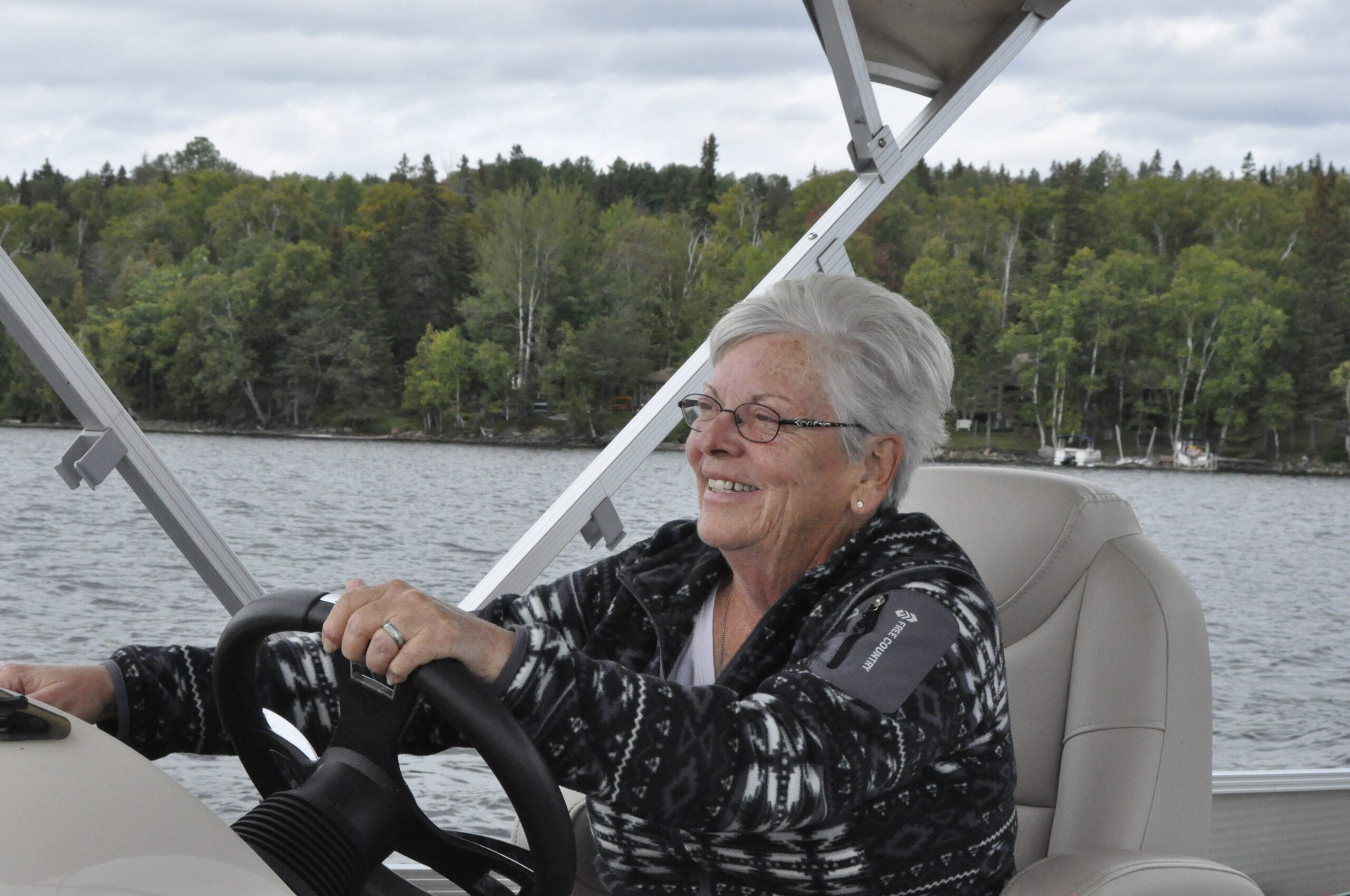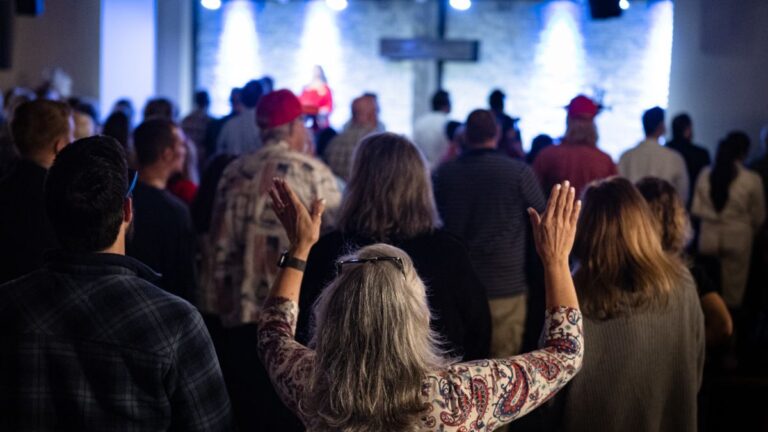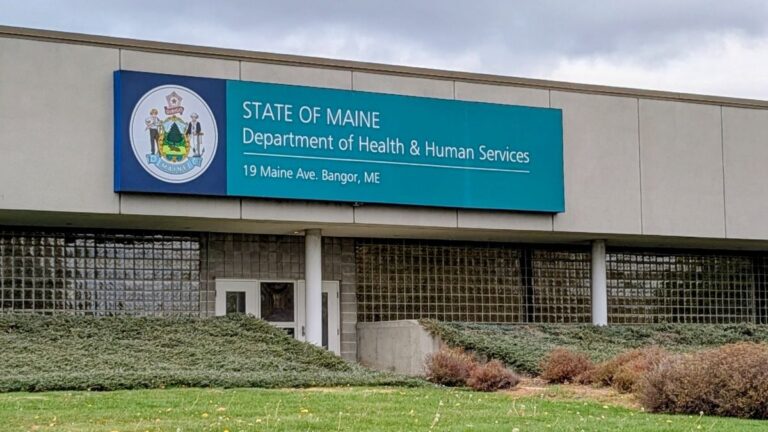Sheri Oldham has been an outdoors enthusiast her entire life. She grew up outside Rumford, where her father took her and her sisters outside as much as possible, teaching them to hunt and fish. “I got a .22 for my tenth birthday. My mother got me a pair of ballet toe shoes. I still have the .22,” she said.
Sheri’s outdoor activities were curtailed a bit while she went to medical school, first in Boston then in Rhode Island (she was the first woman to finish the surgical program at Brown University). But as soon as she returned to Maine to begin her surgical practice in Waterville, she renewed her love affair with the woods and the water.
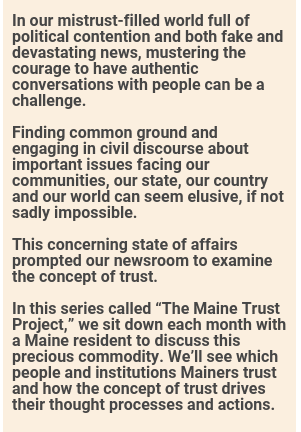 She bought her current year-round home in Rangeley as an outdoor getaway in 1979. Driving up Route 4, she’d get to the S turns just before entering Sandy River Plantation, and all the weight on her shoulders went away: she could be out on the lake or in the woods to her heart’s content.
She bought her current year-round home in Rangeley as an outdoor getaway in 1979. Driving up Route 4, she’d get to the S turns just before entering Sandy River Plantation, and all the weight on her shoulders went away: she could be out on the lake or in the woods to her heart’s content.
Over the years, she’s shown her passion for and commitment to Maine’s hunting and fishing traditions. She’s not only been an active participant, but she’s also helped guide the state’s Inland Fisheries and Wildlife Department. There, she serves as a member of its advisory council, organizing the moose lottery festival in Rangeley, and teaching young people how to practice respectful, safe and responsible hunting and fishing.
From Sheri’s perspective, the trust that happens for hunters out in Maine’s landscape is not easy to verbalize. “To explain to people who have not had those experiences is difficult,” she said.
There’s the trust the hunters need to have in themselves: in their skills and experience, to keep themselves and others safe, and to treat animals and their environment respectfully.
There’s a certain amount of distrust, too, she said, that can help you keep yourself safe. “You need to be aware of your surroundings when you’re doing these things, because someone else in the woods has a high-powered rifle, and I’ve had circumstances where I’ve seen people acting in an unsafe manner in the woods,” she said.
And then there’s the human-animal bond. Not the relationship between hunter and hunted, but the trusting relationship between hunters and their hunting dogs.
Hunters and their dogs work together as a team, usually communicating with each other through hand signals and eye contact. “It’s all subtle,” she said. “It’s all nonverbal working together.”
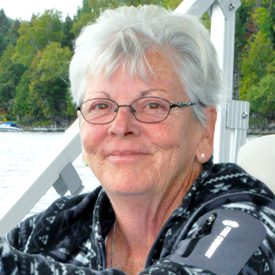
It takes about three years to create the bond of trust between hunter and hunting dog, Sheri said. She is currently starting to build trust with her new hunting dog, Ziggy, a pudelpointer, which is a cross between a German hunting poodle (completely different from a standard poodle, like Leonard, the posh headbanging poodle from the animated movie, “The Secret Life of Pets”) and an English pointer.
As with human relationships, building trust between hunter and hunting dog takes time and exposure to each other, both in the woods and out. There are many hours of training, learning nonverbal communication skills, getting to know each other’s habits and personalities, and gaining real-life experience together.
And even with all that, it is sometimes easy to forget to trust the dog, she said. As the human in the equation, it is easy to think you know better than your dog, but that is frequently not the case.
“You go to an area where you think, ‘Yeah, there should be woodcock in there,’ and you say (to your dog) ‘Find a bird,’ and the dog will just go in and come right out. ‘There’s got to be woodcock in there. Go in there.’ They’ll go in and come right out. There are no woodcock in there. That’s when you have to trust your dog that this is a waste of time.”
Conversely, when your dog is on point, and you go with your shotgun looking for the bird but can’t find it, yet your dog is still on point, don’t assume there’s no bird there, she said. If you have a good dog, and the wind is blowing right, that bird may be 20 yards away.
“You have to trust the dog,” she said. “The bird’s there. You just have to find it.”
Q&A
Who meets your definition of trust?
Sheri: On an individual level, family and friends. There aren’t, in my life, untrustworthy people. To be considered trustworthy by me, don’t lie to me, and if you promise something, I want that expected outcome. Obviously, there are varying magnitudes of that. But, if I felt someone was untrustworthy – if someone lied to me, promised they’d do something and wouldn’t do it – they wouldn’t be in my life.
On an institutional level, being able to trust an institution or a government depends on the proven competence of that institution. One institution that I trust is the Maine Warden Service. When you are in the outdoors, if you get hurt or injured or lost, they will find you. They are well trained and passionate about their work, so that’s a comfort when you spend a lot of time outdoors.
Who doesn’t meet your definition of trust?
Sheri: People who don’t deliver on their promises and who don’t tell the truth.
What breaks trust for you?
Sheri: Lying, and failure to keep your promises. I’m sure it’s oversimplified, but that’s what it comes down to.
Can broken trust be healed and if so, what has to happen for healing to take place?
Sheri: I think it’s easier to repair broken trust – that sounds melodramatic — with an institution. For instance, if I go to a restaurant and I have a bad meal, they’ll never see me again. But, if the restaurant gets new ownership or a new cook, I’ll try.
On a personal level, I’ve been fortunate. I’m a lucky person. I have not had a lot of broken trust issues. I don’t know how you heal broken trust on an individual level because of human behavior being what it is. Maybe it is different with children and young adults because there are still developmental opportunities to improve character – and that’s what we’re talking about: character. But, for adults, behavior tends to be repetitive.
Has your definition of trust changed over the years?
Sheri: Yeah, with age, wisdom is supposed to come right? I trust my gut more. I think the more life experiences you have, the better your gut is at reacting.
What worries you?
Sheri: The pervasiveness of social media and the negative ways it impacts people. For instance, kids who get bullied. When we were in school, the bullying ended when you went home. Today, those kids get bullied 24/7. I also think social media removes the filter of civility. When you’re standing or sitting across the table with someone, you can have a marked disagreement — there’s nothing wrong with arguing your point or expressing your point of view — but you can see their facial expressions and body language, which act as a civility filter. But when you write something and send it out there, there’s no filter and without that civility filter, it becomes really toxic, I think.
What inspires you?
Sheri: Being in the outdoors because of the peace and contentment it brings. I teach kids outdoors skills, like how to use a firearm safely and properly, so they don’t endanger themselves or others. It’s great to introduce them to something they haven’t done before — you know, catching their first fish or breaking a clay target with a shot — and see how excited they are.
What issues do you think are important today?
Sheri: The thing that worries me is that compromise has become a dirty word. We have to compromise, whether in personal relationships or in government.
Get to know Sheri Oldham
Age: 68
Hometown: Rangeley
Religious affiliation: None
Political affiliation: Registered independent
How she describes herself: A strong, self-confident woman.
How she defines trust: In general, trust is a belief that the expected outcome will be achieved. Trusting individuals is different from trusting institutions. You aren’t able to look institutions in the eye the way you can individuals in your life.


